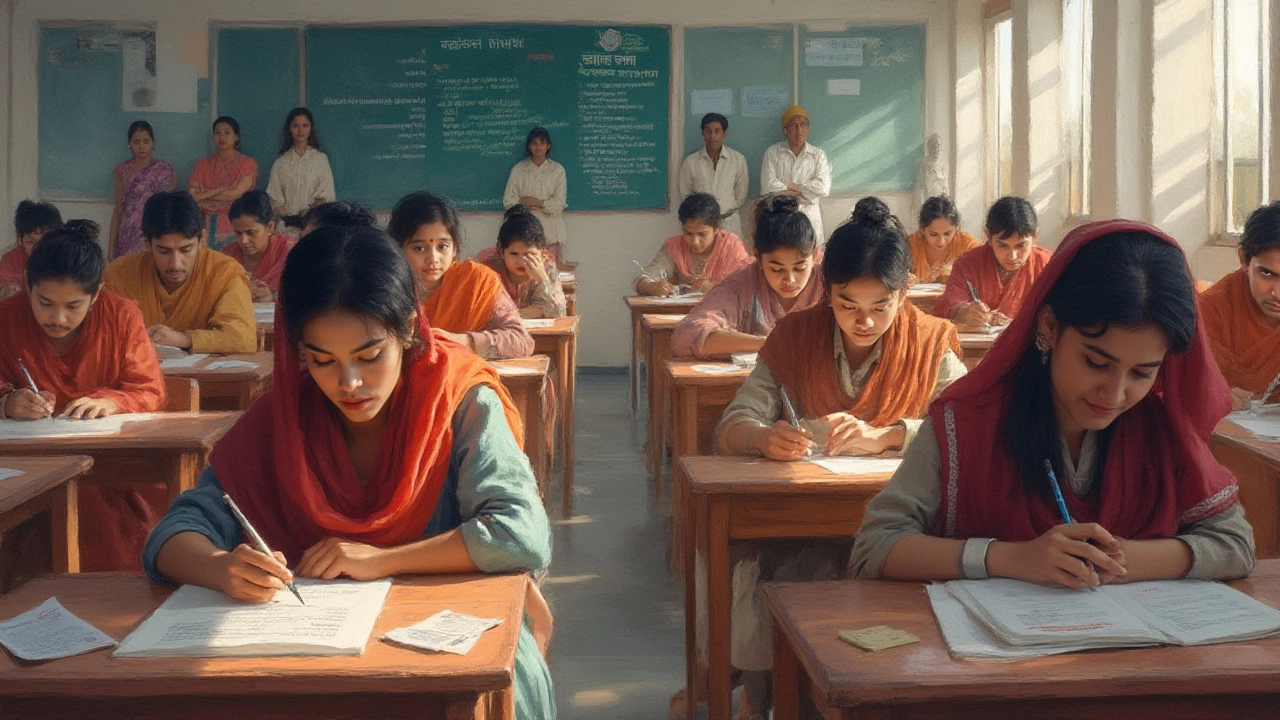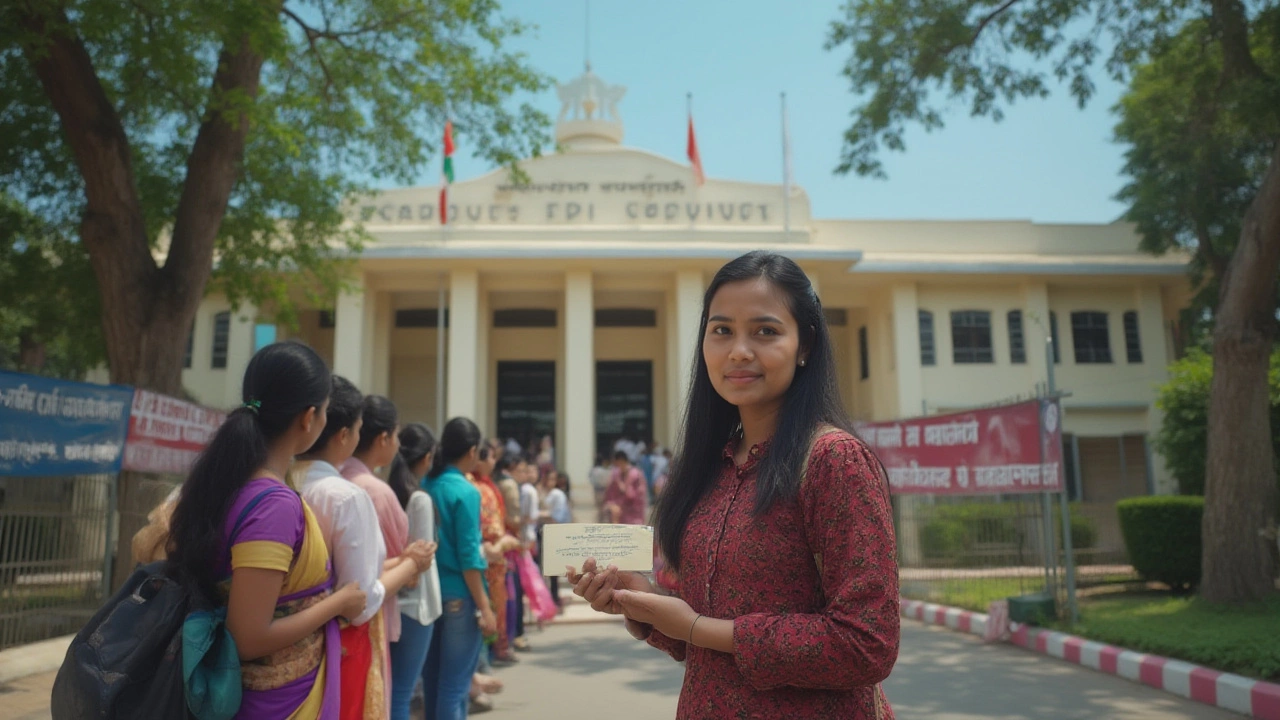
Imagine a queue that wraps around the block, everyone waiting for a shot at a golden ticket: a secure, well-respected government job. This isn’t a fantasy—this is the story behind open competitive examinations, the gateway for millions hoping to enter public service. But while the idea sounds simple—everyone gets an equal shot—the reality is much more layered, and it shapes the destiny of countless careers every year.
Understanding Open Competitive Examinations: What Makes Them Tick?
If you strip away the bureaucratic jargon, open competitive examinations are all about finding the best talent for public sector jobs, minus the favoritism. Everyone who meets the eligibility criteria can apply—no backdoors, no secret recommendations, just your abilities and a standardized test in front of you.
The roots go back centuries; the British introduced this system to India in the 19th century, inspired by reforms in imperial China. Fast forward to today, and countries like India, the UK, and the US rely on these exams to fill everything from entry-level clerk posts to coveted administrative roles. For instance, in India, the Union Public Service Commission (UPSC) runs the iconic Civil Services Exam, where over a million people register each year, but only about 0.2% make it through to the final selection. That’s a tougher acceptance rate than the Ivy League!
So how do these tests actually work? The process starts with a public notification. The exam authority announces vacancies, eligibility criteria, the selection process, and the schedule. There’s no mystery—everything gets published online or in major newspapers. This transparency is one of the biggest selling points. Candidates rush to prepare, booking seats in coaching centers, poring over past papers, and sometimes even spending years getting ready for just one shot.
Let’s talk about format. Open competitive exams aren’t a one-size-fits-all deal. A single recruitment process might stretch over several months, involving multiple rounds. Usually, there’s a preliminary written test packed with multiple-choice questions, followed by a more in-depth main exam (think: essays, data analysis, or technical problems depending on the position). Many also require interviews, group discussions, and sometimes even physical fitness tests or psychological evaluations, especially for jobs in the police, military, or administrative services.
This level playing field is the heart of the system. Rich or poor, urban or rural, everyone gets the same questions. You’ll find stories of candidates from remote villages acing the exam and transforming their families’ economic fortunes. That’s why these exams have become such a cultural phenomenon, inspiring movies, memoirs, and legions of YouTube channels dedicated to cracking the code.
But they aren’t perfect. High competition can lead to stress and sometimes even unhealthy preparation practices, like rote memorization or, worse, cheating. Authorities respond by constantly updating question banks, switching to online proctoring, and using randomized question sets. Check out this quick comparison of different recruitment boards:
| Country | Main Exam Body | Applicants (2024) | Acceptance Rate |
|---|---|---|---|
| India | UPSC | 1,100,000 | 0.2% |
| USA | US Civil Service | 210,000 | Approx. 2% |
| UK | Fast Stream | 45,000 | 1.8% |
Preparing for these exams isn’t just about being book-smart. Successful candidates share a mix of time management, stress resilience, and an ability to adapt quickly. They know where to focus (weightage varies by post), spot recurring question types, and brush up on current events, especially when applying for high-profile roles. If you’re just starting out, try building a habit of reading daily news, practicing mock tests, and timing yourself. It may feel overwhelming, but small steps add up.

How to Get Ready: Insider Tips for Tackling Open Competitive Exams
Wading into open competitive exams can feel like being dropped into a maze—twists, turns, and dead ends abound. But a few core strategies keep you on track and help you navigate the madness. The first step is understanding the syllabus inside out. It sounds basic, but many candidates make the rookie mistake of glossing over the fine print. Each exam has a detailed syllabus available online—down to the last sub-topic. Skim this, and you risk wasting energy on irrelevant material.
Once you have the syllabus, create a plan that fits your strengths and weaknesses. Are you blazing through quantitative aptitude but struggling with English comprehension? Or is it the reverse? Be honest with yourself and schedule your study sessions to attack these weak spots early. Don’t wait for the last month to patch knowledge gaps, because panic almost always sets in.
Another secret weapon is practice. Most toppers don’t do anything miraculous—they take stacks of mock tests, analyze their errors, and keep refining their approach. This does two things: it builds your speed (crucial when you’re facing a ticking clock) and your confidence. If you’re practicing for something like the SSC CGL or the Railways RRB exams in India, maybe even set your room up like an exam hall, with no notes, no mobile phone, just the test paper and a timer. Train yourself to stay calm when you hit a tough question or blank out—panic is the real enemy.
Current affairs matter more than you’d think, especially for high-level exams. Take the UPSC Civil Services or the Public Service Commission exams in state governments: one-third of the questions may revolve around politics, global events, or economic news. Habits build here too—spend 15 minutes every day reading a reputable English newspaper, or listen to daily news podcasts if you’re always on the go. If you notice certain topics getting repeated (for example, climate change or digital payments), create a notebook where you jot down key facts or dates in bullet points. That quick reference comes in handy closer to the test.
Time isn’t just about the exam day—it’s about how you manage the months leading up to it. Plot out a study calendar, give yourself weekly targets (not yearly goals), and schedule short breaks. Burnout is common, especially when thousands are competing for a handful of jobs. If you’re not careful, you might lose motivation by the halfway mark. Find a buddy or an online community to share resources, swap notes, or even just vent when things get tough. Keeping your mental health in check is just as important as putting in the study hours.
Here are a few bonus tips that successful aspirants swear by:
- Don’t ignore the official notifications. They change exam patterns or eligibility rules without warning—stay updated!
- Previous years’ question papers are a goldmine. They tell you what really matters to the examiners.
- Enroll in a mock test series, even if it costs a bit extra. The real-time exam experience is worth its weight in gold.
- Don’t skip revision in the last month. Memory is fickle—constant revision wins over cramming.
- If the exam includes interviews, start prepping early. Public speaking and clarity of opinions go a long way.
Here’s how a rough study plan might look:
| Months Before Exam | Focus Area | Key Tasks |
|---|---|---|
| 6-12 | Basics & Syllabus Coverage | Read standard textbooks, take notes, build daily news habit |
| 4-6 | Practice | Begin mock tests, analyze mistakes, repeat core concepts |
| 2-4 | Revision & Weak Areas | Target weak spots, join group discussions, keep refining |
| 1-2 | Full Mocks & Interviews | Take full-length mocks, practice interviews, rest and recover |
If you keep chipping away, you’ll slowly build a study rhythm. Track your progress week by week, not just month by month. Missed a goal? Adjust your plan for the next week, but don’t let guilt eat up your energy.

Why Open Competitive Exams Matter: Bigger Than Just Jobs
It’s tempting to view open competitive exams as just hurdles to jump for a steady paycheck and social status, but their impact runs deeper. These exams are a bulwark against nepotism and corruption. By tossing the selection process into the open, governments set a benchmark for transparency—and that ripple effects out to society.
When kids from small towns snag big positions, they don’t just change their own lives—they become role models back home. This democratizes opportunity; it puts every school kid on a level starting line, whether they grew up in a city penthouse or a rural hut. Even employers in the private sector pay attention—those who clear these exams are seen as resilient, adaptable, and trustworthy.
Let’s talk numbers for a second. In India alone, over 50 million applications were received across all public sector exams in 2024. That’s not a typo. Out of those, nearly two million people secured government jobs—most through some form of open competition. The biggest employers? Indian Railways, State Public Service Commissions, and teaching positions, followed by banks and armed forces. These large-scale hiring drives keep the nation running—literally, in some cases.
But the system isn’t without criticism. There’s the mental toll: thousands spend years preparing and still don’t make the cut. There’s also the question of whether rote learning outweighs practical skills, especially in exams overloaded with multiple-choice questions. Authorities are experimenting with improvements—computer-based adaptive testing, introducing situational judgment into interviews, and even holding recruitment drives in regional languages to reach a broader base.
On a global level, open competitive exams are copied, adapted, and debated. The US uses them for civil service, healthcare, and teaching jobs. Singapore, with one of the smallest but most effective public sectors, tailors tests to focus on both knowledge and practical skills. Japan’s National Personnel Authority introduced personality tests—partly to screen for future leaders, not just exam toppers.
For candidates, the system still offers the clearest shot at merit-based hiring. The promise is plain: show your *ability*, and the job is yours, regardless of your last name. That’s a pretty radical idea in a world where “who you know” can count for so much. As reforms continue and old flaws get patched, open competitive exams remain the backbone of recruitment where fairness matters most.
At the end of the day, these exams are more than just tests—they’re opportunities, lifelines, and sometimes, the spark that kicks off big change for families and communities. Armed with the right plan and mindset, anyone willing to put in the hours can turn a fiercely tough competition into the beginning of something huge.
